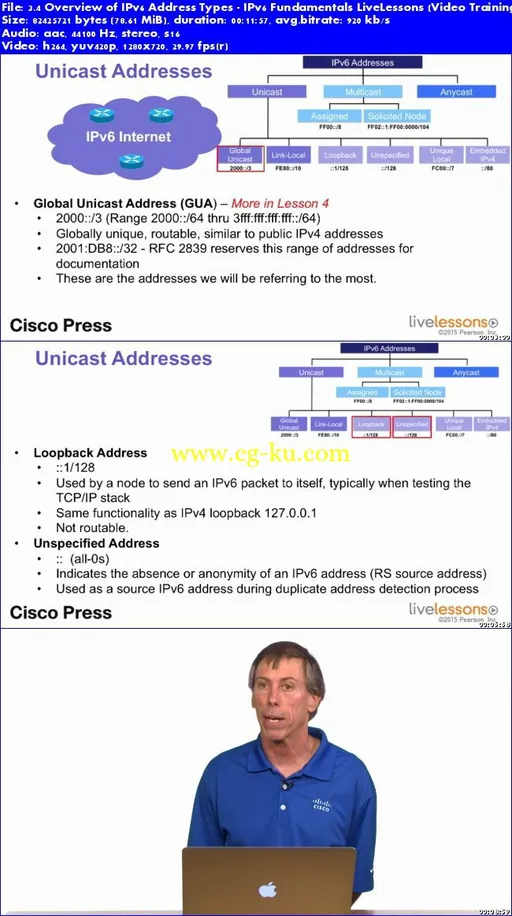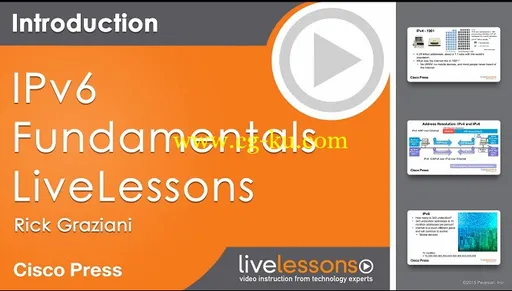
IPv6 Fundamentals LiveLessons
English | .FLV | h264, yuv420p, 1280x720, 29.97 fps(r) | aac, 44100 Hz, stereo, s16 | 3.98 GB
Genre: E-learning
Learn about IPv6 addressing and address types, dynamic IPv6 address assignment using SLAAC, stateless DHCPv6 and stateful DHCPv6, DHCPv6 prefix delegation, ICMPv6 Neighbor Discovery, and routing IPv6 using EIGRP for IPv6 and OSPFv3, including named EIGRP and OSPFv3 address families.
IPv6 can be challenging for everyone, from CCNA students to seasoned network engineers. The transition to IPv6 has begun, mostly due to the long-anticipated problem of IPv4 address exhaustion. The lessons in this video give you a strong foundation in understanding the IPv6 protocol, including IPv6 addressing and address types; dynamic IPv6 address assignment using SLAAC; stateless DHCPv6 and stateful DHCPv6; ICMPv6 Neighbor Discovery; address resolution; and routing IPv6 using EIGRP for IPv6 and OSPFv3, including named EIGRP and OSPFv3 address families. Using the information in this video, you will understand how IPv6 is implemented in a network. The author provides a series of short instructional videos that clearly explain these and other IPv6 topics. These videos will help those already familiar with IPv4 become confident in their understanding and implementation of IPv6.
What You Will Learn
The reasons for the transition to IPv6 and a brief history of its development
A comparison between the IPv4 and IPv6 protocols
IPv6 addressing in depth (and how it differs from IPv4) including global unicast, link-local unicast and multicast addresses
Stateless address autoconfiguration (SLAAC), stateless DHCPv6, stateful DHCPv6, and DHCPv6-PD (Prefix Delegation)
ICMPv6 Neighbor Discovery including address resolution and duplicate address detection
IPv6 configuration options for Cisco routers and hosts
IPv6 routing protocols including EIGRP for IPv6, Named EIGRP, and OSPFv3 and OSPFv3 address families
Understanding the IPv6 routing table and defining static IPv6 routes

发布日期: 2015-04-11